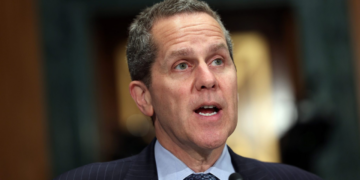The latest edition of LinkedIn’s Workforce Confidence survey revealed that only 26% of U.S. professionals plan to ask for a raise in the upcoming six months. This is a decline from 29% the previous year. This could be because of employee awareness of the U.S. inflation rate and corporate leaders being less inclined to offer raises. However, there’s been a notable exception to the hesitation: Generation Z.
Gen Z employees, or those aged 27 or younger, were found to be the most likely to seek pay increases in the next six months. LinkedIn’s data revealed that Gen Z males (41%) are more likely than their female counterparts (36%) to pursue a raise.
This differs somewhat compared to older generations, where the gender gap in pay expectations diminishes. For instance, among millennial employees (ages 28 to 42), 35% of men and 36% of women plan to request a raise in the next six months. When analyzing Gen X (ages 43 to 58) responses, LinkedIn’s data found that 26% of men and 25% of women said they plan to ask for a raise in the next six months. That percentage drops even further when analyzing responses from baby boomers (ages 59 to 77). According to the data, baby boomers hold the highest satisfaction with current pay levels.
Gen Z’s assertiveness in seeking better compensation is suggestive of the evolving work-life preferences and experiences of the latest generation to enter the U.S. workforce. The Gen Z demographic can typically be found at entry-level positions, working to move up, as more are quickly being recognized as rising talent, according to the report.
For businesses, this data suggests a need to re-evaluate retention strategies, especially for younger employees. Recognizing and rewarding talent will likely be crucial when retaining the best of Gen Z at businesses across the U.S.
As we look to the future, it remains to be seen if this trend will continue in the coming years. Perhaps Gen Z’s approach will influence older generations to reassert the value they bring to an organization or business. However, one thing is clear: the future of work will likely be shaped by those who value their contributions and are not afraid to advocate for themselves.















